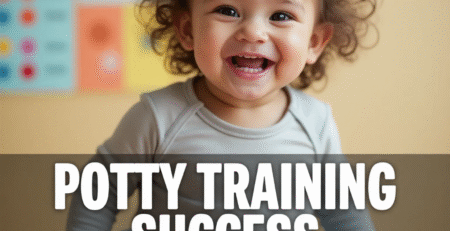“Are We Rich?” – What I Told My 7-Year-Old Will Shock You (Money Mistakes 93% of Parents Make)
The Question That Every Parent Dreads
“Are we rich, Mom?”
You freeze. Your 7-year-old just asked the question you’ve been avoiding. Maybe it happened when they noticed their friend’s designer sneakers, or when you said “we can’t afford that” at the toy store.
Here’s a shocking reality: 93% of children form lasting beliefs about money and social class before age 9 – yet only 21% of parents regularly discuss finances with their kids. That means most children are building their financial worldview based on incomplete information, playground rumors, and dangerous assumptions.
If you don’t teach your child about money and inequality, someone else will – and you won’t like their lessons.
Why Your Silence About Money Is Harming Your Child
Kids Are Natural Financial Detectives (And They’re Getting It Wrong)
Your child notices everything. They see who drives the fancy car at school pickup. They observe which families take expensive vacations. They’re constantly categorizing: rich, poor, middle class.
But here’s what’s worse – they’re making dangerous assumptions about why these differences exist.
Research shows children often believe wealthy people are “smarter” or “work harder,” while poor families are “lazy” or “not as good.” These biased inferences don’t just hurt their understanding of the world – they shape how they see themselves and others for decades.
The truth? Economic inequality stems from complex factors including systemic policies, historical advantages, educational access, and yes, sometimes luck. Your child needs to understand this complexity, or they’ll carry harmful stereotypes into adulthood.
The Hidden Cost of Financial Silence
When you avoid money conversations, your child doesn’t stop wondering – they start guessing. And their guesses often center on shame, fear, and misconceptions.
Consider this: children from families who openly discuss finances show 67% better money management skills in young adulthood compared to those from financially secretive households.
How to Transform Your Child Into a Money-Smart Future Adult
Talk Money Like You Talk Weather – Naturally and Often
Stop treating family finances like state secrets. Your child doesn’t need to know your exact salary, but they should understand basic concepts:
- Budgeting: “We budget $50 for groceries this week because we’re saving for our vacation.”
- Debt: “We’re paying off the car loan, which means less money for extras right now.”
- Investing: “We put money in your college fund every month so it grows over time.”
Remember, you’re not burdening them – you’re preparing them. Children who understand family financial decisions feel more secure, not more anxious.
Give Them Real Money Experience (Not Fake Monopoly Bills)
Want your child to truly understand money? Stop lecturing and start practicing.
Allowance with Purpose: Give them age-appropriate amounts to manage. Let them make mistakes with small amounts now so they won’t make catastrophic errors with large amounts later.
The Debit Card Revolution: For tweens and teens, consider supervised debit cards. Watching real money disappear from their account teaches lessons no piggy bank ever could.
Investment Opportunities: Open a custodial investment account. Let them choose one stock and track its performance. They’ll learn about risk, reward, and long-term thinking.
Part-Time Jobs: Encourage age-appropriate work – from lemonade stands to babysitting. Nothing teaches money’s value like earning it yourself.
Address the Inequality Elephant in the Room
Your child will notice economic differences whether you discuss them or not. The question is: will they understand the real causes?
Don’t Say: “They’re rich because they worked harder.” Do Say: “Families have different amounts of money for many reasons – some people had more opportunities, some face barriers others don’t, and sometimes it’s about luck or timing.”
Explain Historical Context: “Some groups were prevented from buying homes or going to certain schools for many years, which affected their families’ wealth.”
Discuss Current Systems: “Some jobs pay more than others, and that doesn’t always match how important or difficult the work is.”
Your goal isn’t to make them cynical – it’s to make them informed and empathetic.
Model Equality at Home (Your Actions Speak Loudest)
Children learn more from what they observe than what you say. If you want them to understand fairness and equality, demonstrate it.
Share Household Responsibilities: Ensure chores and financial decisions aren’t divided along traditional gender lines.
Discuss Your Choices: “Dad does more cooking because he enjoys it and has more flexible hours, not because it’s ‘women’s work.'”
Address Your Own Biases: Be honest about areas where your household might not model perfect equality, and explain why you’re working to change it.
What Happens When You Get This Right
Imagine your child at 25: they budget confidently, invest wisely, and treat people with different economic backgrounds with respect and understanding. They don’t carry shame about money or make assumptions about others based on wealth.
This isn’t fantasy – it’s the predictable result of intentional financial education starting today.
Your First Step Starts This Week
Don’t try to revolutionize everything overnight. Instead, choose one conversation starter for this week:
Age 3-7: “Let’s talk about why we compare prices at the grocery store.” Age 8-12: “Want to help me plan our family budget this month?” Age 13+: “Let’s look at your savings account and talk about your goals.”
Remember: consistency beats perfection. One honest conversation plants seeds that grow into financial wisdom.
Start small, stay curious, and watch your child develop the money skills that will serve them for life. Because when it comes to financial literacy, the best time to plant a tree was 20 years ago – but the second best time is today.
Your child’s financial future depends on the conversation you have this week. Don’t let another day pass in silence.













LEAVE A COMMENT